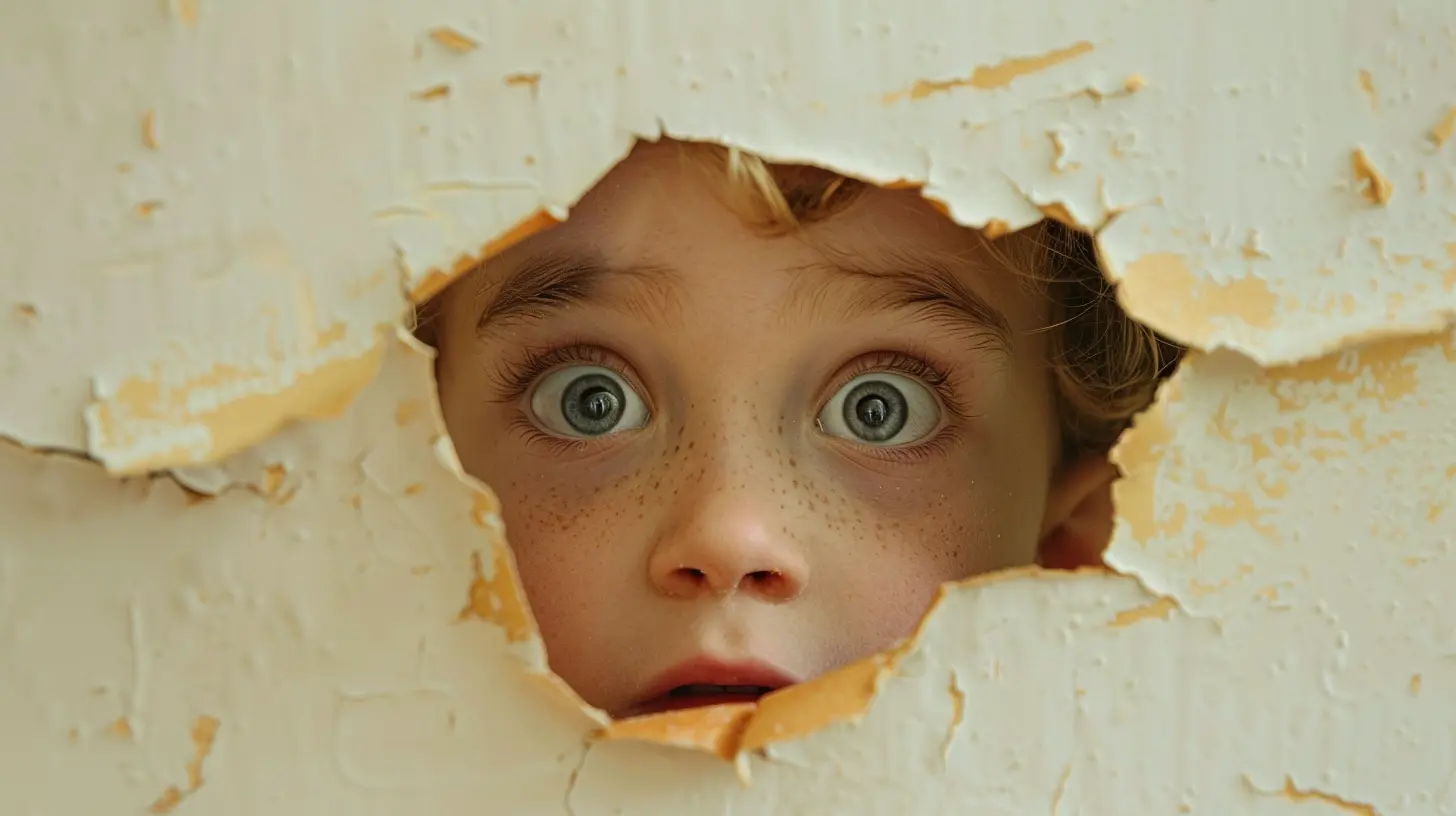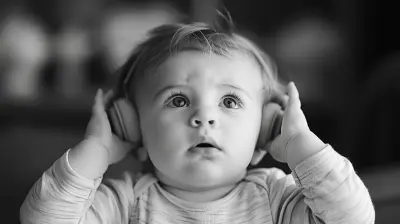How Overexplanation Confuses Kids and Hinders Their Growth
10 November 2025
Ever tried explaining something really simple to your child, only to find them looking at you like you've just recited an ancient spell? It's not just you. We’ve all done it. You’re trying to do the right thing—give them all the context, explain the “why,” load the facts, and sprinkle in some wisdom. But here’s the thing: sometimes, less is more.
Welcome to the curious world of overexplanation—where good intentions lead to muddled minds and missed opportunities for growth. Let’s dive into why overexplaining can do more harm than good, and how you can empower your child by saying less.
What Is Overexplanation? (And Why Do We Do It?)
We overexplain when we give too much information—think long-winded details, unnecessary backstories, and endless “because…” statements. And honestly? We do it out of love.We want our kids to understand the world and make good choices. We figure if we lay it all out, they're more likely to get it. But here’s the kicker—kids’ brains don’t work like adult ones. They're wired differently, and often, our adult-style explanations just leave them mentally overloaded.
It's Not About Dumbing It Down
Let’s clear this up: not overexplaining doesn't mean talking down to your kids. It's about being clear, concise, and age-appropriate. Think of it like giving someone a map—if it's cluttered with every street name and landmark from five cities away, they’ll get lost before they even start. Kids need simple, direct guidance. Not a TED Talk.
The Brain Overload: What Happens When Kids Get Too Much Information
Imagine you're trying to follow GPS directions, but the voice gives you five turns ahead instead of just the next one. Stressful, right?Now imagine your child, whose brain is still developing, trying to filter through paragraph after paragraph of explanation. Their working memory (that part of the brain that holds temporary information) isn’t built for long-winded logic chains. They forget, get confused, or worse—they tune out entirely.
Cognitive Fatigue Is Real
Overexplaining often leads to cognitive fatigue. Kids start zoning out, get overwhelmed, or shut down. That’s not stubbornness—it’s their brain defending itself from overload.
Why Simplicity Is A Superpower
Think back to your own childhood. The lessons that stuck with you—were they long lectures or short and snappy truths?Kids thrive on clarity. When your communication is short, simple, and impactful, they’re far more likely to understand and remember. Think of it like planting a seed. You don’t need to dump a whole bag of fertilizer on it. A little water and sunlight—consistently delivered—is all it needs to grow.
Signs You Might Be Overexplaining (Yep, You're Probably Doing It)
We’re not pointing fingers—we’ve all been there. But if you spot these habits, it might be time for a communication reset:- You repeat the same point in five different ways.
- You start every sentence with “Let me explain…”
- Your child’s eyes glaze over halfway through.
- You feel frustrated they're not “getting it.”
- You end up doing the thing yourself instead.
Sound familiar? It’s okay. The good news? You can shift your approach right now.
How Overexplaining Backfires
Here’s where things get interesting (and a bit ironic). Overexplaining can actually hinder the very things we want for our kids—like independence, confidence, and critical thinking.1. It Undermines Their Confidence
When we explain something five times, our kids may start wondering: “Why does Mom think I’m not getting this? Am I dumb?” Even if they don’t say it out loud, the doubt is there. Over time, they may stop trusting their own instincts and always wait for your input. That’s not what we want.2. It Discourages Problem-Solving
If you're always pre-answering every possible question or outcome, where’s the room for exploration? Kids learn best when they do, not when they’re spoon-fed the entire manual upfront. Imagine trying to assemble a puzzle someone already put together—you lose the fun, the struggle, and the reward.3. It Creates Dependence, Not Resilience
When kids are used to overexplained guidance, they become reliant on it. They might struggle to make small decisions or get anxious when they don’t have all the answers. Real life doesn’t offer a full script. Sometimes, they have to wing it—and that’s okay. That’s actually life.But Wait… Isn’t Explaining Important?
Yes, of course! Kids shouldn’t be left in the dark. Explanations are necessary—especially when it comes to safety, values, and consequences. The key is knowing when to stop, and how much is just enough.It’s like seasoning food. A pinch of salt brings out flavor—dump in the whole shaker, and you’ve ruined the meal.
Tips to Avoid the Overexplaining Trap
Want to start communicating more effectively with your child—without the word salad? Try these:🎯 Keep It Age-Appropriate
Think about their age and developmental stage. A 4-year-old doesn’t need a moral deep-dive into why we’re kind. “We don’t hurt others because it’s not kind” will do. Save the philosophy for later.🧩 One Message at a Time
Stick to the point. If it’s about doing homework, don’t veer off into a talk about college applications and the job market. Reel it in.🚦 Ask Before You Explain
Try asking your child what they already understand. “Do you know why bedtime is important?” Their answer might surprise you—and save you a whole monologue.🛑 Pause Often
Break your explanation into chunks. Give room for questions. This keeps it interactive and ensures they’re tracking.🧠 Let Them Think
Instead of jumping in with lengthy instructions or answers, pause and give them a chance. Ask them what they think or how they might handle it. Let them wrestle with the puzzle.Real-Life Scenarios: Overexplained vs. Just Right
Let’s look at a quick example.Overexplained:
“Okay sweetie, the reason we don’t put crayons in our nose is because noses are part of the respiratory system, and those crayons could travel up and cause damage or infection. Your body has delicate systems working together and obstruction isn’t safe…”Just Right:
“Crayons go on paper, not in noses. It can hurt you. Want to color with me?”See the difference? It’s not that the first one is wrong—it’s that it’s way too much.
The Power of Silence (Yep, Even That Helps)
Sometimes, the best thing you can say is... nothing.Giving your child space to process, fail, or even struggle a bit is essential to their growth. When we rush to explain, fix, or guide at every turn, we rob them of the very skills we want them to develop—like resilience, creativity, and independence.
Let them sit in the “I don’t get it yet.” That’s where learning begins.
Parenting Isn’t a Lecture Hall
Imagine if every time you made a mistake, someone followed you around explaining exactly why it happened for five straight minutes. Exhausting, right?Now imagine being a kid.
Kids don’t need endless explanations. They need engaged, intentional communication. More listening, more trust, and just enough guidance to light the path—not flood it like a stadium spotlight.
Final Thoughts: Say Less, Teach More
Parenting is hard. We’re all figuring it out in real time. Wanting to help your child by explaining things isn’t wrong—far from it. But when that help turns into a wall of words, we lose them.So next time you’re about to dive into a detailed explanation, take a breath. Ask yourself: What’s the one thing they really need to know right now?
Say that. Then stop. And watch what happens when their minds have space to grow on their own.
all images in this post were generated using AI tools
Category:
Parenting MistakesAuthor:

Austin Wilcox
Discussion
rate this article
1 comments
Gemma Fuller
This article highlights a crucial point: overexplaining can stifle children's independence and critical thinking. Allowing kids to grapple with ideas on their own fosters resilience and confidence. A balanced approach to communication encourages growth and empowers them to navigate challenges more effectively.
November 10, 2025 at 5:22 PM

Austin Wilcox
Thank you for your insightful comment! I completely agree—striking a balance in communication is key to fostering independence and critical thinking in children.


